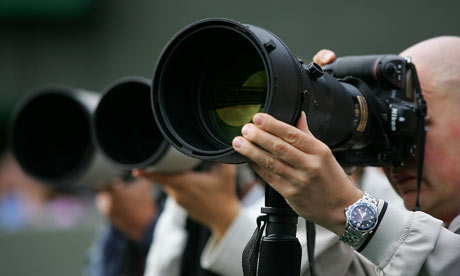
Jonathan Littell caused something of a stir with the publication of his massive, ambitious novel about an SS officer, The Kindly Ones – opinion is split sharply between whether it is a work of genius or an overblown con. The French gave it the Prix Goncourt; and now it has been awarded the Athens prize for literature. The controversy here arises because Littell did not attend the ceremony in person because, as he said in a letter to the chairman of the jury, "literature is a very private matter now, and that what takes place between a writer and his work belongs to a sphere utterly separate from the interaction of that work with those who read it, comment it, praise it or damn it." He adds: "Privacy, for me, is a fundamental condition of creation, of work."
Superficially, this looks like a rather curious and self-aggrandizing attempt to justify one's own shyness. What, after all, is this fragile congress between writer and work that would be ruined by exposure to the glare of publicity? (You note that Littell has been quite happy to accept the awards, possibly with Kingsley Amis's dictum on them in mind: "they're all right if you win them".) Does standing up and mumbling a few words of thanks while one pockets the cheque let too much daylight in upon magic? What, in short, does he mean?
Considered more carefully, though, I begin to appreciate Littell's position. The thank-you speech at the awards ceremony is one of the more ballsaching spectacles the cultural world has to offer (the most ballsaching spectacle, it could be argued) and any writer/actor/whatever who forgoes the temptation to deliver one should be given a little extra by way of recognition of their selflessness.
My mind turned to Samuel Beckett, who, upon being awarded the Nobel prize for literature in 1969, declared it (in the word of his wife Suzanne) a "catastrophe", and went into hiding. This was because of a genuine horror of publicity, and although he did not write a tortuous and confusing letter about the privacy of literature, something similar to what Littell was thinking must have been going through his head. (He sent his publisher friend, Jérôme Lindon, to accept the award instead.)
So let us salute the refusenik, the party-pooper, the recluse. And salute them more if they do what Beckett did: give all the prize money away. I wonder if Littell has done, or will do, that.

